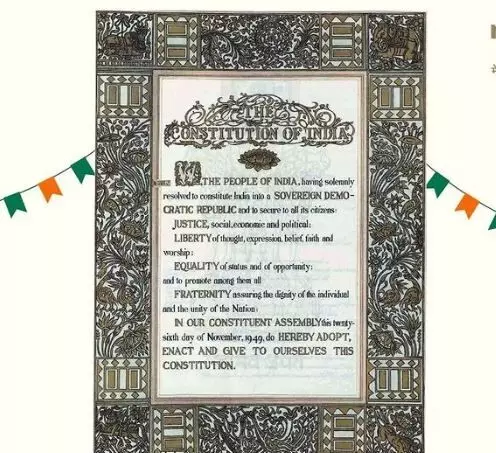
Centre shows how Constitution Preamble would be sans 'Secular' and 'Socialist'
text_fieldsIn a recent social media post marking India's 75th Republic Day, MyGovIndia, the citizen engagement platform of the Government of India, shared an image of the 'original preamble' of the Indian Constitution, without the words 'Secular' and 'Socialist'.
This prompted discussion on the nation's foundational principles and their resonance with contemporary India.
The original preamble, adopted on November 26, 1949, and enforced on January 26, 1950, laid the groundwork for the nation's democratic ethos. However, it underwent a significant amendment in 1976 during the Emergency period, wherein the words "sovereign democratic republic" were replaced with "sovereign socialist secular democratic republic."
Additionally, the phrase "unity of the Nation" was amended to "unity and integrity of the Nation."
This move aimed to reflect India's commitment to socialism, secularism, and national unity within its constitutional framework. However, the recent re-emergence of the original preamble has reignited a debate on the evolution of India's socio-political landscape and its adherence to its constitutional ideals.
Critics argue that the omission of 'Secular' and 'Socialist' from the original preamble in certain contexts undermines the inclusive and egalitarian principles enshrined in the Constitution. They point to instances such as the distribution of copies of the Constitution to Members of Parliament without these words, which was deemed by some as a deliberate omission.
In contrast, proponents of the original preamble emphasize its historical significance and argue that it serves as a reminder of India's journey towards becoming a modern democratic republic. They assert that while the amendment in 1976 reflected the evolving socio-political climate, the original preamble remains a symbol of India's foundational values.
This is not the first time the original preamble has sparked controversy. In previous instances, such as its appearance on educational materials and government advertisements, it has elicited varied reactions from different quarters of society.























